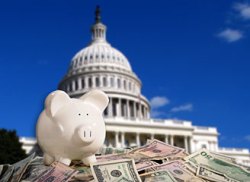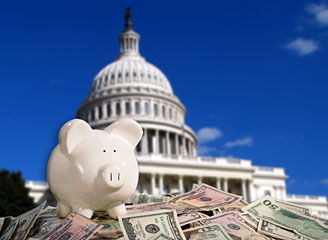 Here’s a game for you.
Here’s a game for you.
Without peeking down below, try and guess how many times since January 2011 the U.S. House of Representatives voted against clean energy or in favor of fossil fuels. Keep in mind that there have been about 450 weekdays during which votes could have been cast between then and now.
Have a number in your head? OK.
The correct answer is 223. The House voted 223 times in support of a dirty-energy economy.
The figure comes from a database compiled by Reps. Henry Waxman (Calif.) and Ed Markey (Mass.), Democratic members of the House Natural Resources Committee.
- 42 votes against clean energy and energy efficiency
- 54 votes for subsidies or other giveaways to the oil and gas industry, including votes to rush approval of Keystone XL
- 127 votes to cut or block health, safety, or environmental protections for the fossil fuel sector
To underscore the futility of the effort: precisely zero became law.
House Republicans likely knew that their efforts were DOA on the other side of the Capitol. In times of political intransigence, pushing extreme legislation is a common tactic, allowing politicians to demonstrate adherence to party ideology while knowing that a bill won’t end up on the president’s desk. As the Congress has grown more asymmetric, policy efforts too have become unhinged.
The report from Waxman and Markey notes one example where legislation could immediately halt a deteriorating employment situation: by extending the wind production tax credit. Without knowing whether the 2.2-cent-per-kilowatt-hour tax credit will be extended beyond the end of the year, wind companies in the U.S. have shed some 2,700 employees so far.
Here’s another figure that’s worth keeping in mind. It’s one we refer to a lot: $160 million. That’s how much oil and gas interests have spent lobbying and donating to members of Congress. About $717,000 per vote.
Not a bad investment at all.



